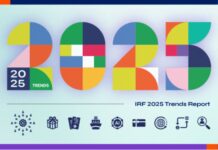Personalized rewards can make all the difference to incentive program qualifiers.
A new Incentive Research Foundation study, Non-Cash Value Perception: Identifying the Tipping Point, suggests that while higher monetary-value rewards can boost motivation and participation, other factors can be equally or even more important to reward recipients. The 500 respondents, surveyed in September and October of 2024, were all full-time employees eligible for non-cash rewards programs within their organizations. They represented a wide range of salaries across a variety of industries, with such positions as retail sales associates, insurance agents, financial advisors and operations, IT, and administration professionals.
“Whether using travel, merchandise, gift cards, or points, the value of non-cash rewards is in the eye of the beholder,” said Stephanie Harris, IRF President. “The value of a reward that motivates and makes a strong impression on an hourly customer service worker may not make the same impression with the owner of an automotive dealership. The IRF’s new study helps incentive professionals identify the ‘sweet spot’ where the reward has the desired effect.”
Four key takeaways:
The value of rewards depend on multiple factors. The incentive program type, from achieving sales goals to achieving customer satisfaction, and whether the program is employee-or channel-driven, affect reward value. Participants of employee programs were more likely to engage in sales goal, customer satisfaction, customer service and loyalty- based rewards programs. Participants of channel programs were more likely to engage in employee recognition and work anniversary rewards programs.
Reward value is linked to performance motivation. In all scenarios in the IRF study, as the monetary value of incentive programs increase, the percentage of participants reporting their willingness to engage in a program and exert extra effort to achieve its goals also rises. However, there was a threshold beyond which further increases in reward value no longer led to significant gains in participation. As well, even substantial rewards did not always attract participation from all potential individuals.
Non-value related factors can greatly enhance an incentive program’s appeal. Respondents cited factors such as personalization, clarity and achievability of objectives, and variety and flexibility in reward offerings as elevating value. Some programs reflecting these factors received higher ratings than the big-ticket rewards.
Reward satisfaction is variable. Satisfaction was generally higher in employee-driven programs compared to channel programs, even though channel program participants often expected greater reward values. This indicates that a more personal connection may significantly influence perceived value.
You May Also Be Interested In…
IRF Predicts a Shifting Incentive Landscape
Incentive Travel Tools Shaping 2025
Individual Incentive Travel: Making the Case











